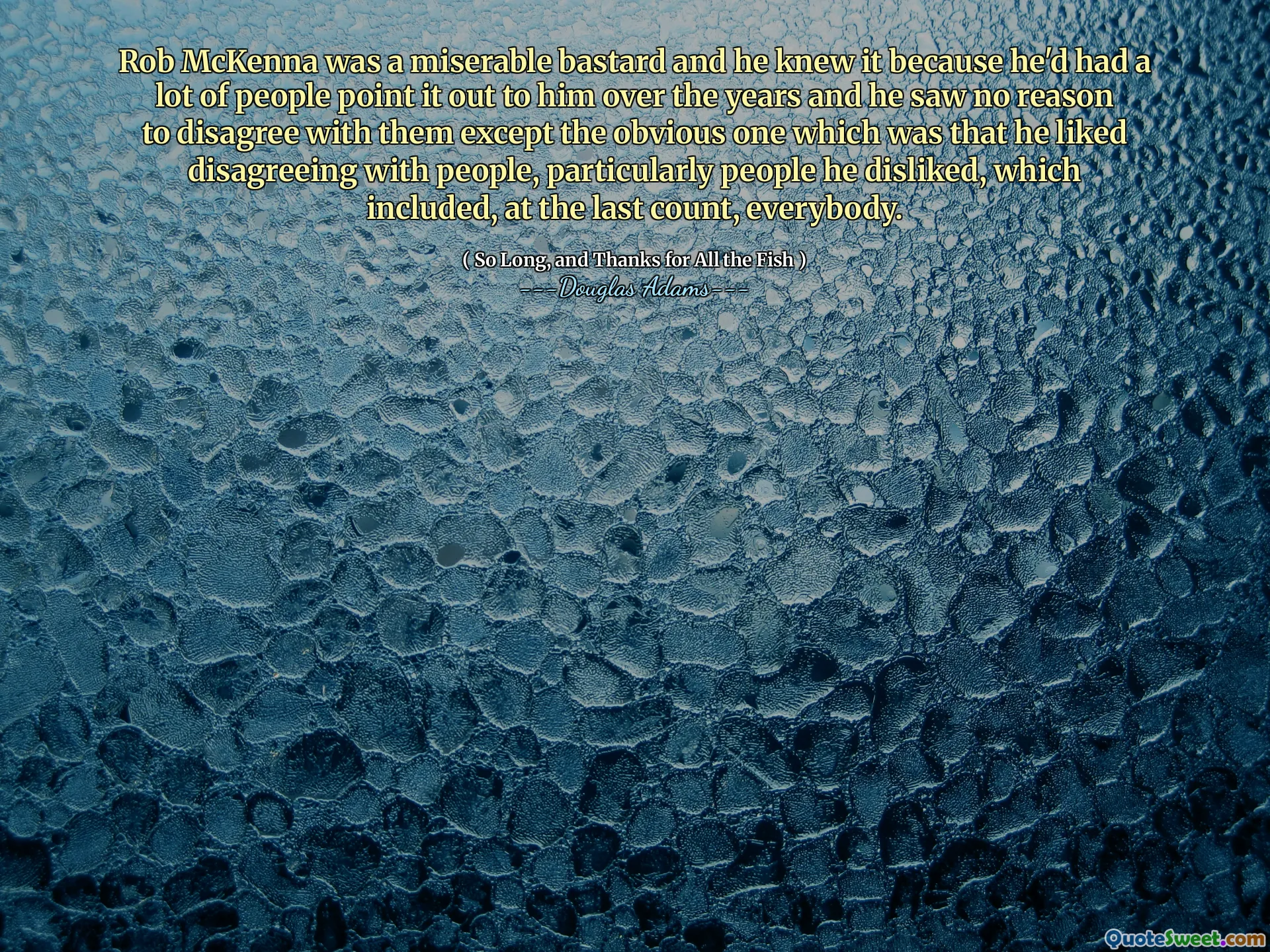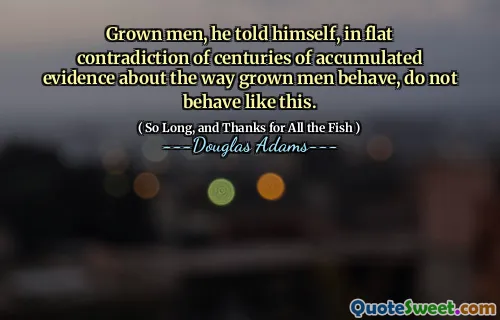
Rob McKenna was a miserable bastard and he knew it because he'd had a lot of people point it out to him over the years and he saw no reason to disagree with them except the obvious one which was that he liked disagreeing with people, particularly people he disliked, which included, at the last count, everybody.
This quote offers a candid and somewhat cynical view of Rob McKenna, depicting him as a person deeply aware of his own dour disposition. The characterization of him as a "miserable bastard" immediately sets a tone of unvarnished honesty, suggesting that he might not be the most easygoing or cheerful individual. Interestingly, the quote highlights a form of self-awareness; McKenna recognizes his negativity and accepts his reputation, yet he seems to find a certain rebellious satisfaction in opposing others, especially those he dislikes. This behavior reflects a complex interplay between self-perception and interpersonal dynamics. In a broader sense, it brings to light the human tendency to derive a sense of identity or control through disagreement and conflict. Such a perspective can be both enlightening and lamentable, depending on how it influences one's relationships and worldview. It prompts reflection on how much of our personality is shaped by consciousness or unconscious habits—are we all, to some extent, self-aware in our flaws? The quote also subtly explores the idea that sometimes, consistent dissent isn't just about disagreement but about asserting individuality and resisting conformity. It raises questions on authenticity, self-acceptance, and the ways in which our perceptions can become self-fulfilling prophecies. Ultimately, this portrayal invites us to consider the complexities behind human behavior—how awareness of our shortcomings can coexist with a curious sense of comfort in our contradictions.
(So Long, and Thanks for All the Fish) - author: Douglas Adams









